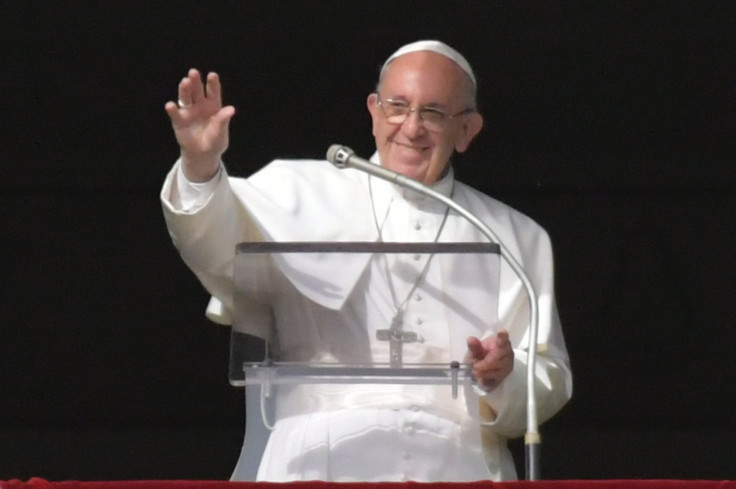Pope Francis To Visit Myanmar: What To Expect

Pope Francis left Vatican City on Sunday night for his first papal trip to Myanmar, which has been in the news in recent months over accusation of ethnic cleansing of the Rohingya community.
One of the important aspects of the trip would be whether the pope will be using the word “Rohingya,” a highly debatable term used to describe the minority Muslim community in Myanmar.
The community has been —according to the United Nations, the United States and much of the global community — at the receiving end of ethnic cleansing, mass murder and systemic rape at the hands of Myanmar military forces and the extremist Buddhist monks.
According to a report in the New York Times, the pope received a special request this month from the archbishop of the Roman Catholic Archdiocese of Yangon, Cardinal Charles Maung Bo, requesting Francis to not say the word “Rohingya.”
“It is a very contested term, and the military and government and the public would not like him to express it,” said Bo, who reportedly did not use the word himself while giving an interview.
He also went on to stress on the fact that the pope should talk about the problems faced by the Muslim community in “a way which doesn’t hurt anybody.”
He advised that using the term “Rohingya” can derail the pursuit of peace.
The report also stated that the pope in earlier statements had used the term “Ronhingya” when talking about the injustices the community was facing in Myanmar. He reportedly stated in late August that there was “sad news about the persecution of the religious minority of our Rohingya brothers.”
The Times report also states that by condemning the atrocities on the Rohingyas during the Myanmar trip will help Francis "reassert his status as the world’s moral compass."
However, Cardinal Bo stated, “He [Pope Francis] understands better now the situation.”
The report states that the current situation in Myanmar is a political, sectarian and a religious minefield and it represents a no-win scenario for the pope, regardless of whatever he does.
According to an article by Thomas J. Reese in the National Catholic Reporter, the pope on his trip risks losing his moral authority or risks putting the lives of the Christian people in that country in danger.
In his article, Reese not only pointed out the human rights violations the Rohingya community is facing in Myanmar at the hands of the Buddhist majority, but he also gave an account of how the Christian minorities are facing a similar situation to their Muslim counterparts by stating a report by the U.S. Commission on International Religious Freedom.
Reese wrote further, “On the one hand, his [Pope Francis] prophetic voice should be on the side of the Rohingya refugees, but the Myanmar military and government deny any ethnic cleansing is happening. A strong defense of the Rohingya will lead to increased persecution of the Christians in Myanmar. ”
More than 620,000 Rohingya have fled to Bangladesh, a country which the pope will be visiting after his trip to Myanmar. In a ray of hope for the Rohingya, a deal was signed last week between Myanmar and Bangladesh to return hundreds of thousands who have fled across the border.
© Copyright IBTimes 2024. All rights reserved.












